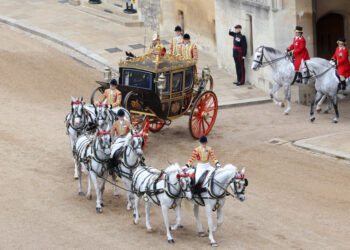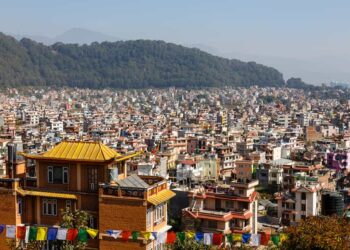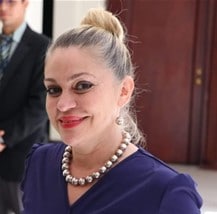 As the World Protocol Magazine Editorial Board, we take enormous pride in keeping this platform open to all experts from the numerous fields of business and protocol: María Cristina Castro Villafranca, from Costa Rica is the next of many who have taken the opportunity of working together with WPM.
As the World Protocol Magazine Editorial Board, we take enormous pride in keeping this platform open to all experts from the numerous fields of business and protocol: María Cristina Castro Villafranca, from Costa Rica is the next of many who have taken the opportunity of working together with WPM.
Ms. Castro Villafranca is the Deputy Chief of Protocol at the Ministry of Foreign Affairs and Worship of Costa Rica, founding member of the World Protocol Organization (OMP) and career ambassador.
She has 20 years of experience in project management, diplomatic démarche, effective communication, document systematization, competitiveness analysis and public relations. She is an expert and lecturer in Etiquette and Protocol. In her second article published by WPM, she shares her experiences about Diplomacy and Protocol in the age of the COVID-19 pandemic.
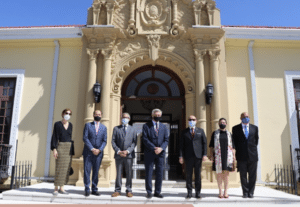 During the pandemic, all working systems were renewed: Diplomacy and Protocol were no exception. COVID-19 unleashed changes that challenged the adaptation capacities of Governments. The Ministry of Foreign Affairs had to come up with an innovative strategy to ensure a successful continuance of its functions.
During the pandemic, all working systems were renewed: Diplomacy and Protocol were no exception. COVID-19 unleashed changes that challenged the adaptation capacities of Governments. The Ministry of Foreign Affairs had to come up with an innovative strategy to ensure a successful continuance of its functions.
Diplomatic protocol typically included physical interactions and contact. Handshakes, more than just a greeting, are considered a sign of peace, trust, and friendship. Kisses on the cheek are considered a part of national etiquette in many European countries and hugs are a common way to show affection and celebration. Unfortunately, these gestures had to be replaced by social distancing, screens, cameras, and microphones.
This article explains how the Ministry of Foreign Affairs and Worship of the Republic of Costa Rica adapted to these changes in 2020 and 2021. It also aims to provide a series of recommendations to maintain and secure protocol rules even when working from home.
Virtual Diplomacy
The first issues that had to be implemented were a series of norms that allowed people to interact in a respectful way, but above all being aware of the technical difficulties and the disadvantages created by digital inequality (lack of internet access and other necessary tools in the digital era).
Such moral and behavioral code was named “Netiquette”, the etiquette of cyberspace. Some basic netiquette rules include the same behavioral guidelines as in normal life, respecting the time and broadband of others, and trying to write as simple, straightforward, and pleasant as possible. Avoid offensive language of all kinds. Sharing the knowledge and helping to keep controversies under control, moreover, respecting the privacy of others… and finally, excusing others’ mistakes: we all make mistakes, every beginning is difficult.
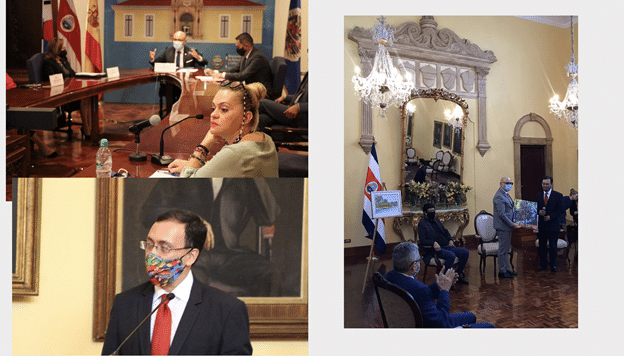
After some training, the use of technology made it possible for important functions to continue. From workshops and internal meetings to bilateral and multilateral meetings, our Ministry did not stop working. It doubled its work using funds that would have been spent on trips on normal times.
The platforms majorly used have been WebEx, Google Meets, Microsoft Teams, and Zoom. Each one of these has their own unique qualities that make them more suitable for different kinds of events. For example, when our Diplomatic Academy has an activity with their students currently working on their master’s degree, Zoom is the best choice with its webinar function. When there is a hybrid meeting in the Golden Hall, WebEx is the preferred option; the internal meetings within Directions and Departments are usually also held via Zoom.
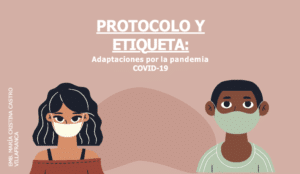 These platforms became essential in 2020, when everything was still new, unknown, and way before we had vaccines on the horizon. One of the biggest challenges the Ministry faced was creating virtual spaces for the introduction of new ambassadors and the presentation of their credentials. This was handled through a symbolic act in which the ambassadors moved their credentials towards the screen and the President pretended to receive them in the same way. This method was also used with concurrent ambassadors in countries like Mexico, Colombia, and Panama. Our Embassies in those countries had to make numerous arrangements, put up flags, screens, and other requirements with instructions from the Directorate of Protocol to be able to carry on with these events through the internet.
These platforms became essential in 2020, when everything was still new, unknown, and way before we had vaccines on the horizon. One of the biggest challenges the Ministry faced was creating virtual spaces for the introduction of new ambassadors and the presentation of their credentials. This was handled through a symbolic act in which the ambassadors moved their credentials towards the screen and the President pretended to receive them in the same way. This method was also used with concurrent ambassadors in countries like Mexico, Colombia, and Panama. Our Embassies in those countries had to make numerous arrangements, put up flags, screens, and other requirements with instructions from the Directorate of Protocol to be able to carry on with these events through the internet.
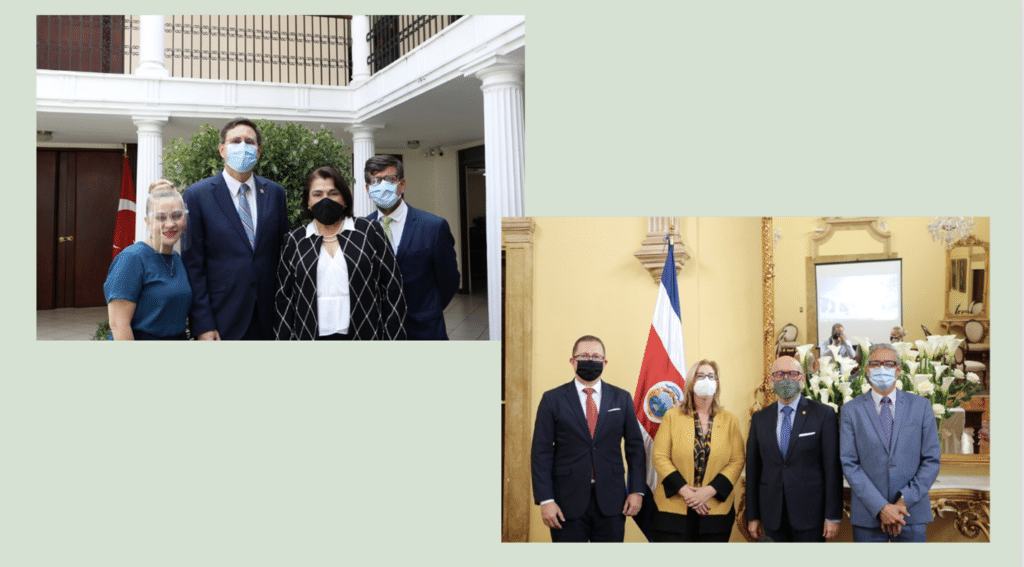
It is important to note that there were cases in which we encountered unexpected technical difficulties, especially with countries where the internet connection and technology were not in optimal conditions. This was the case with Cuba and other countries with which we patiently worked out interferences with audio latency and cameras.
However, there were still some exceptional in-person events that year. The same credentials ceremonies from ambassadors with permanent missions in Costa Rica took place in front of the President in the Presidential House, with lots of modifications from the usual events. Other exceptions were known as “modified in-person events”: signing of international documents, agreements, memorandums, floral offerings, and other ceremonies in front of our National Monument, especially during national holidays.
It was not until the middle of this year that events with a limited number of participants could take place. The summit of Chiefs of State and Government, from the Central American Integration System (SICA), took place in-person in San José, Costa Rica. To make it possible, the logistics and organization teams had to be supervised by the Ministry of Health and respect their sanitary rules.
In general, the rules put forward by the Ministry regulate travelling to prevent the spread of the virus. Some of these restrictions include respecting the 1.8m social distancing, 50% capacity in hotels (this rule has been modified as cases dropped), mandatory mask usage, hand washing, disinfection of public spaces. Food must be packed individually, cutlery must be sealed, drinks can only be distributed in bottles; there must be kits with disinfection towels offered. What is more, from October 15th, 2021, all public employees must be vaccinated. In an extra effort to keep everyone safe, the Directorate of Protocol and State Ceremonial has had aides in these big events in charge of reminding guests to wash their hands and keep their distance.
 Regarding some bigger-scale events, like the presentation of the Catalogue of Technical Cooperation offered by Costa Rica 2021-2023 (made jointly with the Ministry of National Planning and Economic Policy) or the launch of the Costa Rican Space Agency (an initiative of the Ministry of Science, Innovation, Technology, and Telecommunications), a hybrid event format was chosen. This format allows the Diplomatic Corps to stay informed about the political and diplomatic situation of the country from the comfort and safety of their homes or embassies. This also allowed the presence of guests of honor who would not have been able to attend to an in-person format.
Regarding some bigger-scale events, like the presentation of the Catalogue of Technical Cooperation offered by Costa Rica 2021-2023 (made jointly with the Ministry of National Planning and Economic Policy) or the launch of the Costa Rican Space Agency (an initiative of the Ministry of Science, Innovation, Technology, and Telecommunications), a hybrid event format was chosen. This format allows the Diplomatic Corps to stay informed about the political and diplomatic situation of the country from the comfort and safety of their homes or embassies. This also allowed the presence of guests of honor who would not have been able to attend to an in-person format.
These hybrid events resulted in the alteration of the halls of the Ministry of Foreign Affairs, which are now prepared to allow the setup of cameras, microphones, screens, and projectors, sending links to the Diplomatic Corps and other guests to attend these events virtually. The most important challenge to this format has been avoiding interruptions in the transmissions. The technology available is stable but not perfect, livestreaming meetings, summits, events, speeches, and such, always implies a contingency plan, sound checks, adjusting the cameras, a team in charge of all the settings and so on.
This pandemic has truly brought a swifter view of diplomacy, and thus a more productive one. Nonetheless, this does not mean that virtuality is going to entirely replace the traditional ways. Even though new technologies have proved to be efficient, there is still a strong resistance by the Diplomatic Corps, composed mainly by older people. Career diplomats recognize the advancements brought by technology, yet they still acknowledge that there are certain tasks that require the observation of body language, empathy, and the warmth of human contact.
Virtual Protocol
 Regardless of the format of the meeting, protocol never went away. It had to be adapted to new challenges in many aspects. It is essential to remember that without protocol there are no adequate conditions to carry out diplomacy. It is the art of showing respect towards our peers, generating comfort, trust and most importantly, differentiating diplomacy from the rest of the corporate operations.
Regardless of the format of the meeting, protocol never went away. It had to be adapted to new challenges in many aspects. It is essential to remember that without protocol there are no adequate conditions to carry out diplomacy. It is the art of showing respect towards our peers, generating comfort, trust and most importantly, differentiating diplomacy from the rest of the corporate operations.
The Directorate of Protocol has been determined to maintain high standards in protocol during the pandemic, with the aim of meeting the standards of those countries that honor us with the privilege of their friendship, through their emissaries who work to strengthen our bonds. To achieve this, we have followed the following recommendations:
Flags: the big flags must be placed behind the speaker and the small flags should be placed on the table. Forgetting this detail can come off as lack of interest or informality. Flags should never be used as a fictional backdrop. They could only be used as a profile picture to allow for delegations to be easily identified in the meeting and this is only allowed when the post of the servant is lower than that of a director or an ambassador.
Backdrop: a backdrop with neutral colors is always the most ideal. Having a door or a hallway behind us increases the chance of a distraction if someone were to pass through there. It is not recommended to use a virtual backdrop like a landscape, aurora borealis, or fictional libraries. In the case of our Ministry of Foreign Affairs, blue banners with official logos are used as backdrops for the conferences of our Minister (this was also made for our Presidency).
Username: it should be written following this formula: Post + Name + Country. For example: Amb. Maria Cristina Castro, Costa Rica.
 Microphone: it should stay muted at all times except when one is formally asked to speak to avoid uncomfortable interruptions. In this sense, if possible, it is recommended to have the moderator of the meeting remind everyone of the correct use of this tool. If there is a recurrent issue with the use of microphones, some platforms have the option of turning off every microphone when the guests enter the call.
Microphone: it should stay muted at all times except when one is formally asked to speak to avoid uncomfortable interruptions. In this sense, if possible, it is recommended to have the moderator of the meeting remind everyone of the correct use of this tool. If there is a recurrent issue with the use of microphones, some platforms have the option of turning off every microphone when the guests enter the call.
Camera: having the camera on is a courtesy towards the rest of the people on the call. In times of confinement, seeing other people’s faces could generate comfort between members, and thus, increase productivity. Nonetheless, this courtesy should not ignore the norms of Netiquette, understanding that some people might not have a strong enough connection to open their cameras. If someone does not have the bandwidth to have their cameras on while others do, Netiquette dictates that they should only open them during the greeting or when they would like to intervene.
How to prepare for opening the camera? Using white clothes will enhance the image and allow the participants to look brighter on their cameras. Even when connecting from home, it is better to wear a full formal outfit given that a sudden movement of the camera might reveal some inappropriate attire.
Finally, I would like to remind the readers that protocol goes beyond elegant gatherings. The Directorate where I work took care of the needs of the diplomatic missions, especially regarding the aid and repatriation of their nationals to their countries of origin.
Sometimes, in specific cases, humanitarian aid was coordinated with the national institutions in charge of health, migration, emergencies, and such, almost becoming a travel agency for repatriation and humanitarian flights. In other words, we solved crises in the middle of a global crisis in a discrete and professional way. In protocol we flaunt like a swan: swimming flawlessly, even in turbulent waters


